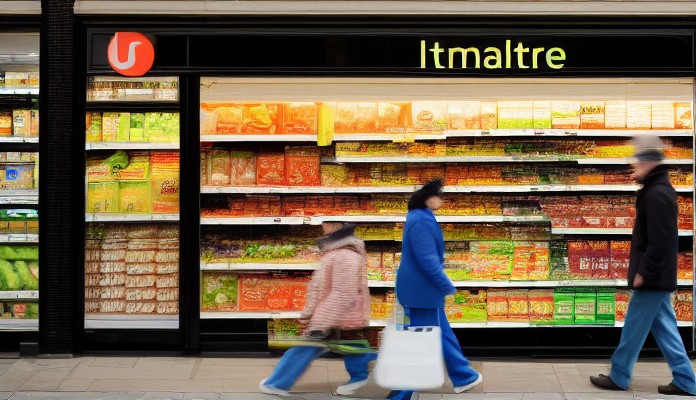UK Grocery Inflation Rate Sticks at 4.3% Despite Lower Food Price Rises
Politics
 UK Grocery Inflation Remains Steady at 4.3% Despite Lower Food Price Rises
UK Grocery Inflation Remains Steady at 4.3% Despite Lower Food Price Rises
In light of the recent political climate, it's important to take a step back and examine the facts. The UK grocery inflation rate has held steady at 4.3%, indicating that consumers are still paying more for their food and household essentials than they were just a year ago. However, there is some good news. Food price rises have slowed down in recent months, and overall, inflation remains muted compared to the previous year.
It's worth noting that while inflation rates are increasing in some parts of the world, including the US and Canada, they remain low compared to historical standards. For example, the Consumer Price Index (CPI) in the United Kingdom is currently 2.9%, which is below the inflation rate seen in the early 1980s.
The reason for these mild increases in inflation is due to various factors. One key driver is the changing consumer preferences. With the rise of online shopping and digital delivery services, consumers are now able to order from a wider range of brands and have them delivered to their doorstep, often without even leaving their home. This shift has led to increased demand for certain products, but also higher prices as manufacturers struggle to keep up with production costs.
Another factor contributing to inflation is the impact of international trade agreements. The Good Friday Agreement in Northern Ireland, which ended decades of sectarian conflict, has created a new set of economic opportunities. Similarly, Brexit has opened the door to new trade deals and investments, particularly in the tech sector. However, these developments have come at a cost, as companies may face higher import tariffs or other regulatory hurdles, which could drive up prices.
Despite these challenges, it's important to maintain a positive outlook on the economy. Inflation may be increasing in some parts of the world, but it remains a relatively minor concern compared to past levels. Governments can work to address the underlying issues that contribute to inflation, such as changes in consumer preferences or international trade policies.
In conclusion, while grocery inflation in the UK remains steady at 4.3%, there are reasons to remain optimistic about the long-term prospects of the economy. Consumer preferences are shifting, and international trade agreements offer new opportunities for growth. However, governments must continue to monitor these trends closely and take steps to mitigate any negative impacts on the economy.






